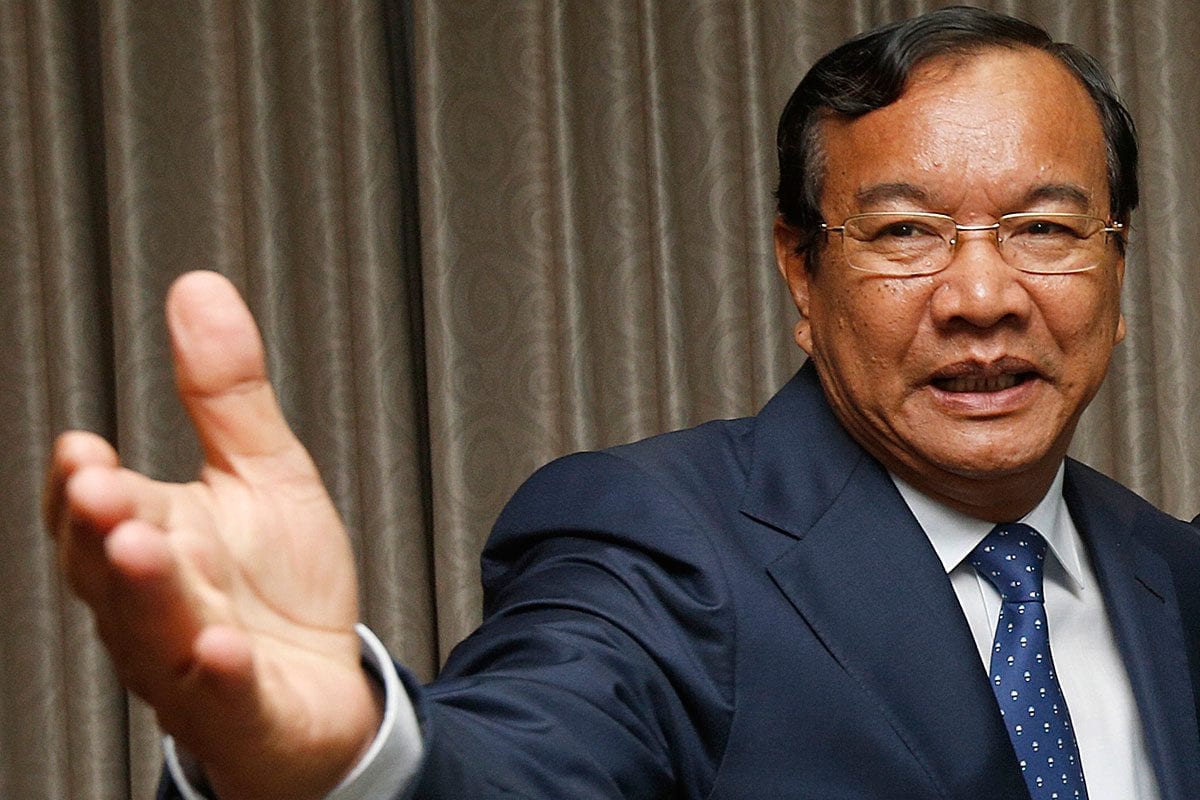The government and CPP officials yesterday hit back at the US House of Representatives after it unanimously passed the Cambodia Democracy Act of 2019, which would impose travel and economic sanctions on Cambodian leaders considered to have “undermined democracy” in the country.
The proposed act, HR 526, will next head to the US Senate for approval.
The bill would direct the US president to enforce asset freezes and visa restrictions against senior officials of the Cambodian government, military and security forces if they are deemed to have undermined democracy in Cambodia and committed serious human rights violations.
The bill was reintroduced to the House by Congressman Ted Yoho in January, with co-sponsors Alan Lowenthal, Eliot Engel and Michael McCaul.
A previous version of the bill was tabled in the House last year and also passed unanimously, but failed to make it through the Senate’s Foreign Relations Committee before Congress closed for the year in December.
The introduction of last year’s bill came after a crackdown on the political opposition and civil society, including the dissolution of the CNRP by Supreme Court order. It was passed just days ahead of general elections in July.
Engel, who is the chairman of the House’s Foreign Affairs Committee, expressed his support for the bill during yesterday’s House session, saying the US would hold Cambodian leaders accountable for their “assault on democracy.”
“This bill sends a clear message that the United States stands shoulder to shoulder with the people of Cambodia and that Congress will hold Cambodia’s leaders accountable for their assault on democracy and violations of human rights,” Engel said. “I am pleased co-sponsor this bill, I’m glad we’re moving that forward today.”
Yoho argued in a statement issued after the bill was passed that Cambodia’s ruling party had no intention to relinquish power democratically.
The Cambodian government “used violence, threats, and sham prosecutions to attack the peaceful opposition,” Yoho said.
“The Cambodia Democracy Act of 2019 will push back against the Hun Sen regime’s undermining of democracy and related human rights abuses by applying financial sanctions to the figures who carry out this despicable agenda and codifying the Administration’s existing visa restrictions for these individuals,” he said.
“I look forward to the bi-partisan legislation being sent to the Senate and eventually becoming law. It is time to hold the Hun Sen regime accountable for their actions.”
Government spokesman Phay Siphan said he felt “surprise and regret” at the US House of Representatives’ support for the bill.
“I consider this bill to be political motivated and intended to go against the political will of the Cambodian people, who elected their leaders based on the law through a peaceful and democratic election,” Siphan said.
“The leaders of the royal government and the Cambodian people cannot accept it, because this bill was introduced on baseless accusations in order to serve the historical political ambitions against Cambodian government,” he added. “This bill is an act against peace, stability and prosperity of the Kingdom of Cambodia.”
He appealed to US lawmakers to reconsider their assessment of the political situation in Cambodia, particularly in light of maintaining good relations and upholding the mutual interests of the people and governments of both countries.
“My expectation is the US Senate and the US president will pay close attention to maintaining the good relations and international cooperation that both of our nations have been trying to uphold together,” he said.
CPP spokesman Sok Eysan added the sanctions proposed by the bill would be largely meaningless.
“The US bill is inefficient,” Eysan said. “No one wants to step on US soil, and we also don’t have money in [US banks] for them to freeze.”
He also criticized the US congresspersons for passing the bill, saying they lacked information regarding the true situation in Cambodia.
“There are 18 signatory countries to the Paris Peace Agreement. Why is there only one country that always expresses sympathy toward Cambodia?” Eysan said, apparently referring to Cambodia’s growing ties with China.
The other signatories, he said, had only criticisms to offer.
“When we implement the law, they say we restrict the people’s right or mistreat them. When we forgive people, they said we are lacking in the enforcement of the law.”
In March, Hun Sen brushed off the mounting international pressure, saying Cambodia had its own laws to ensure democracy and human rights.
“If they forced a country to apply their standards [on them], would they be able to follow?” he said. “You eat bread, I eat rice. It’s not the same. We hope we can understand each other.”








